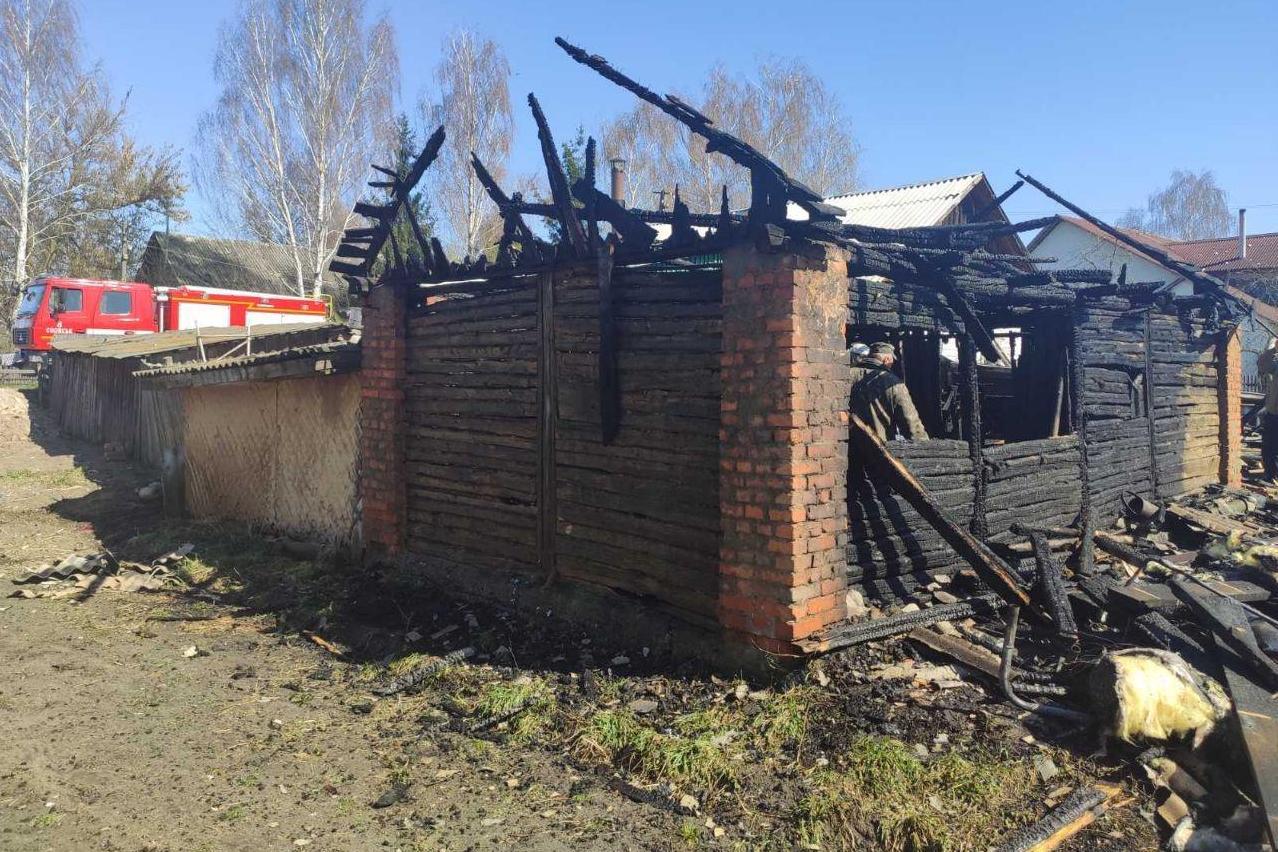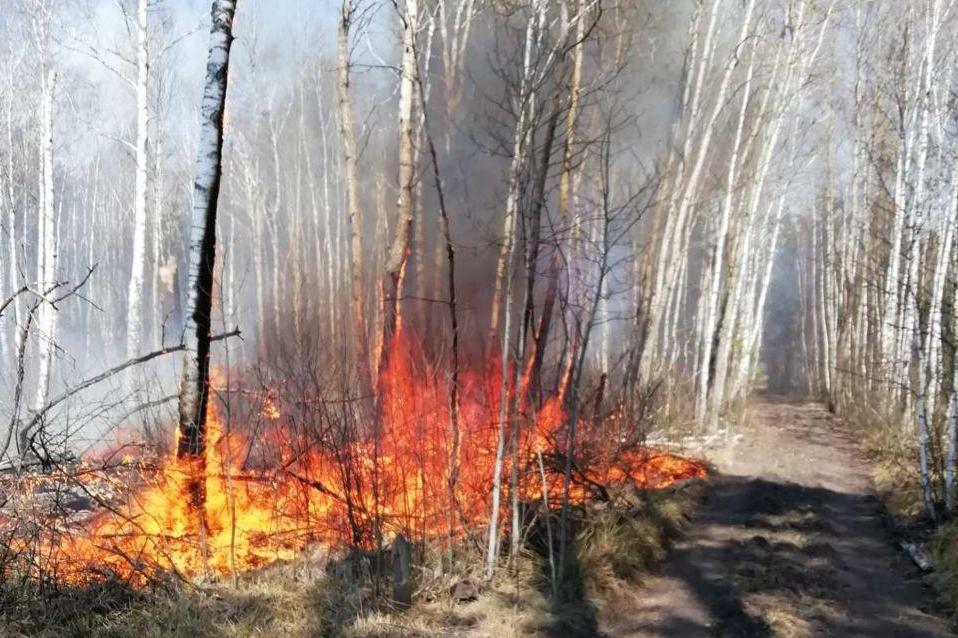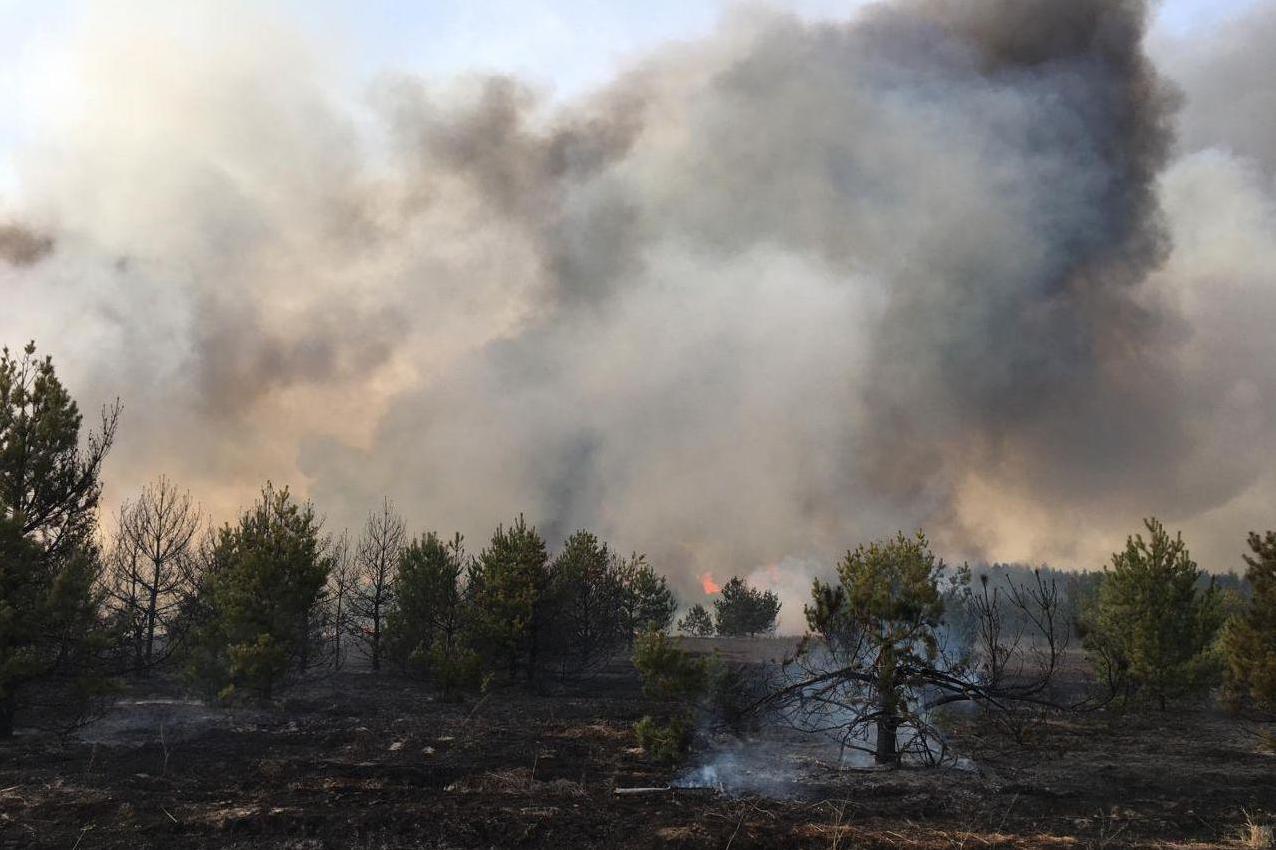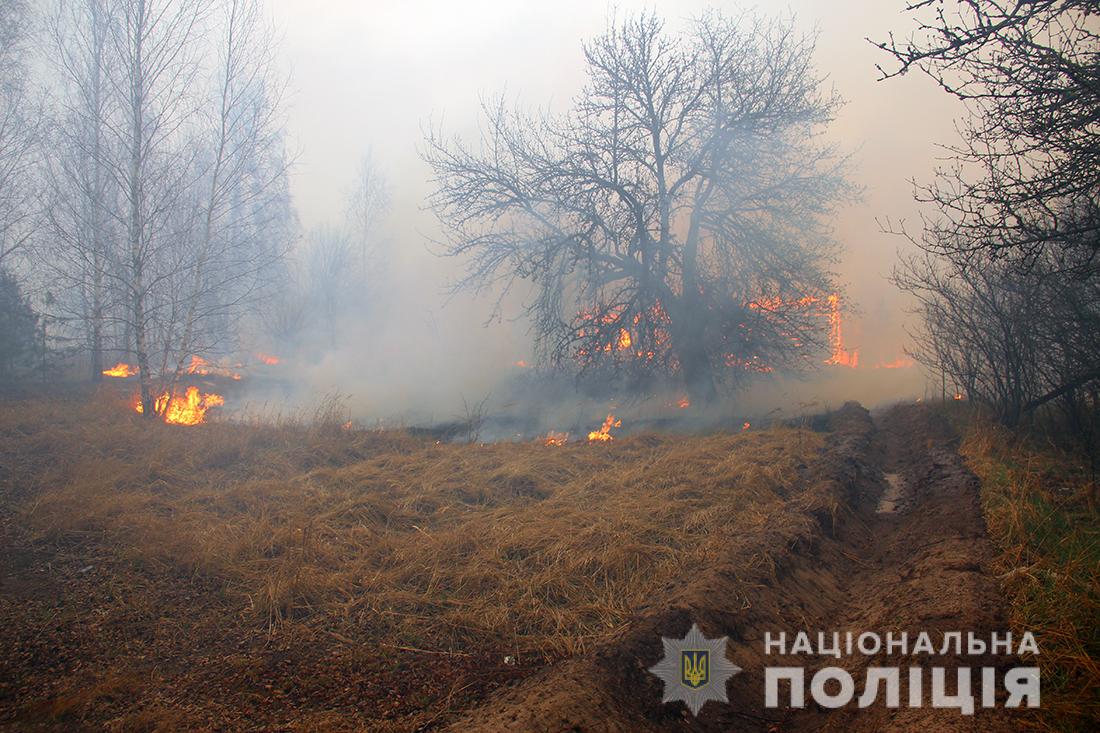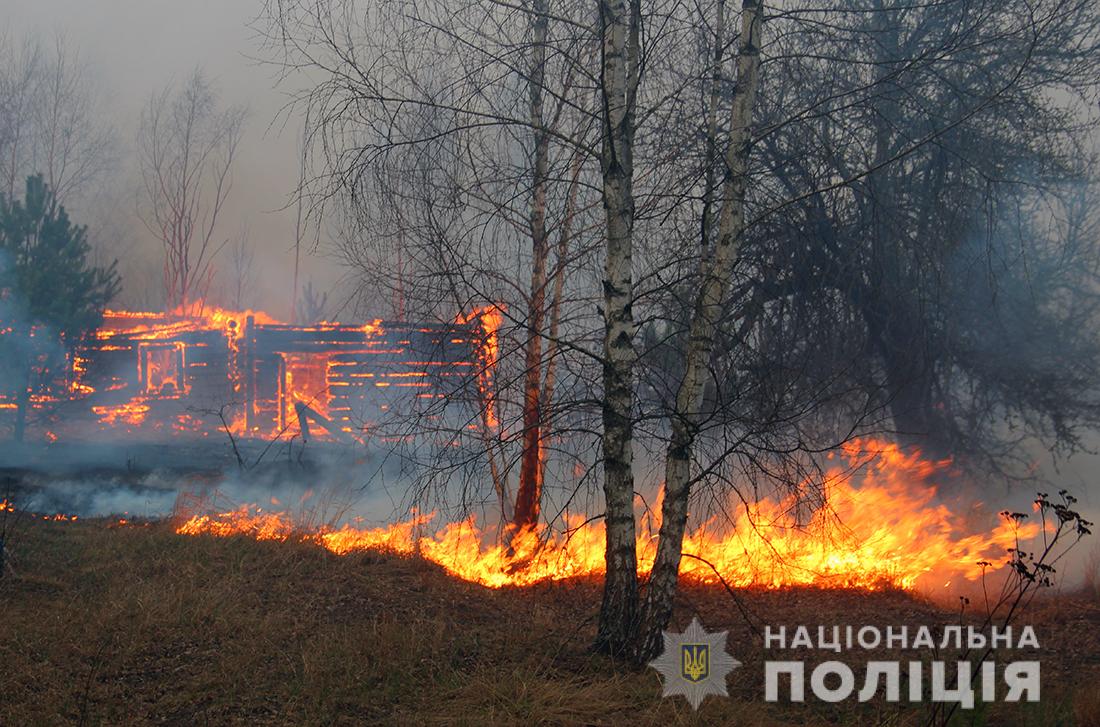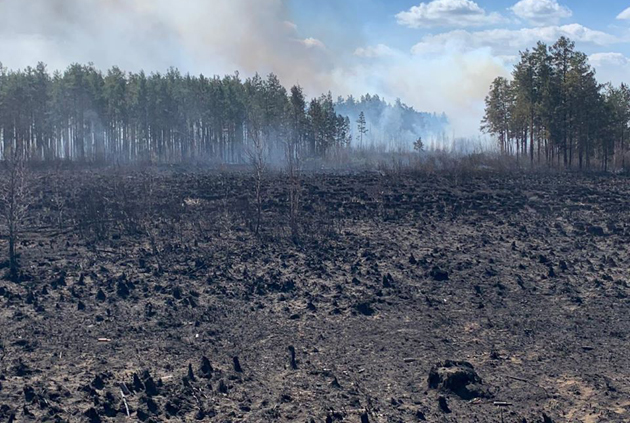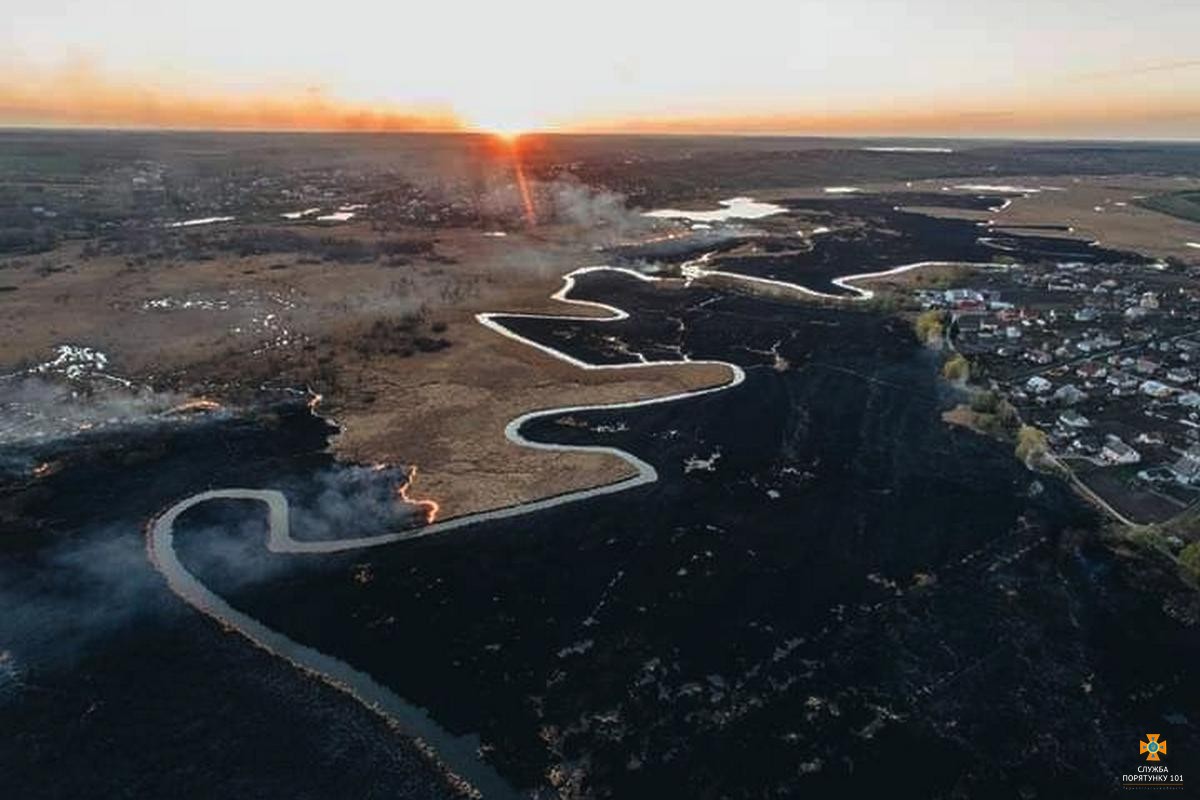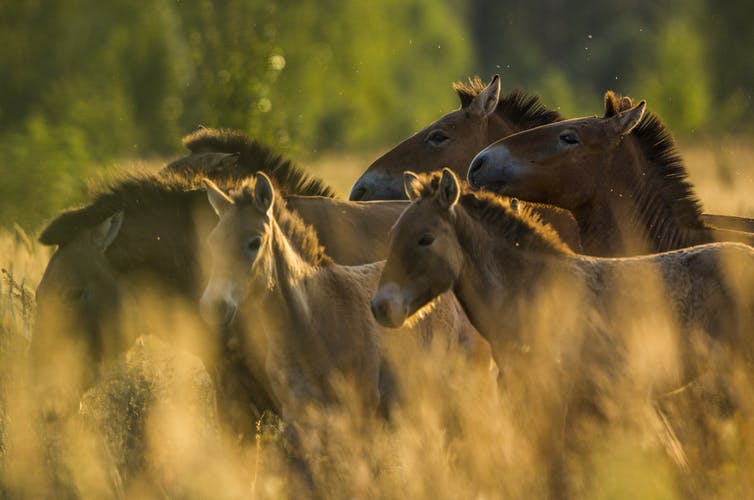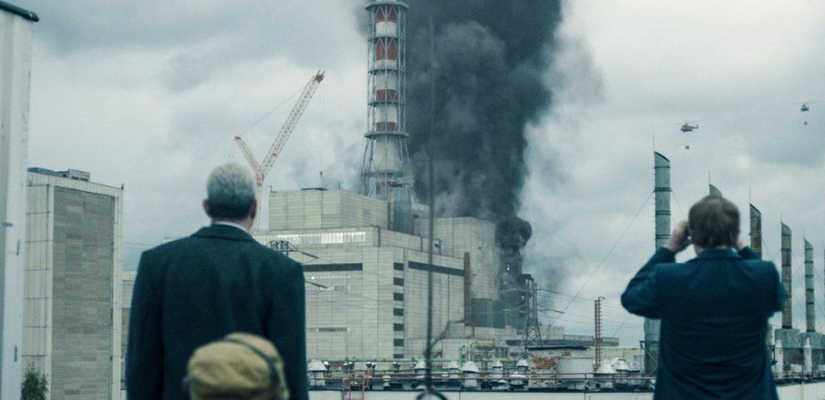The spring and fall wildfires are not unusual in Ukraine after dry winters and hot summers, though this year’s blazes are out of range.
What causes the fires and what Ukraine does to prevent them in the future?
Ukraine on fire
The wildfires have been raging all around Ukraine in forests and steppes for weeks. Every day, firefighters report on multiple fires in various regions of the country, often blaming arsonists. Most of the fires are minor since the firefighters respond to them in a timely manner, however, some of the blazes spread to significant areas before the emergency services spot them or get informed on them.
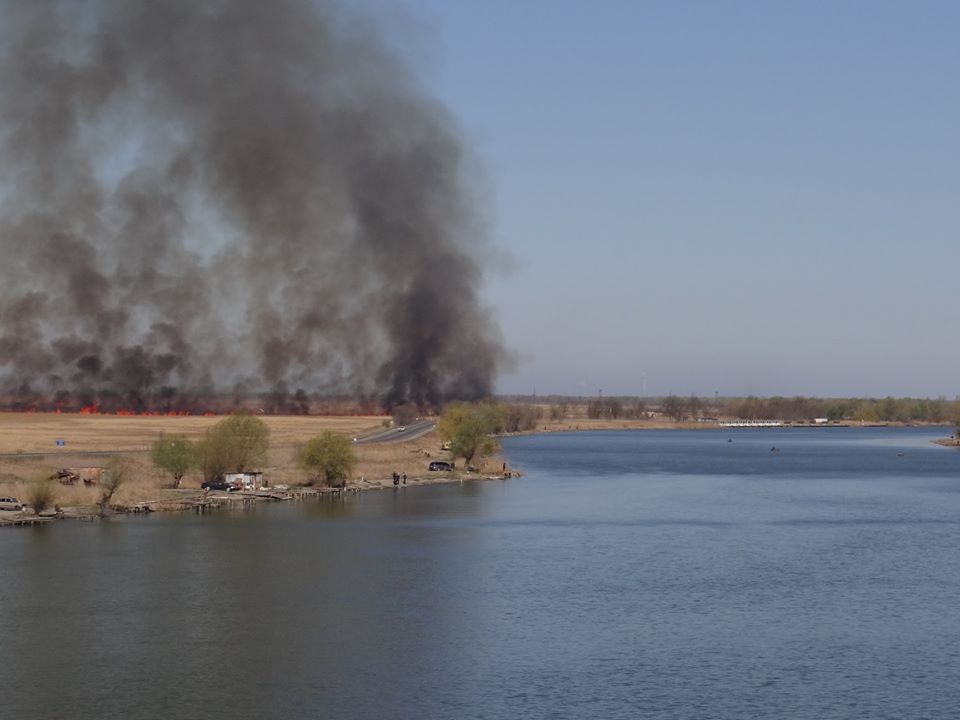

on 9 April 2020 by the Kherson Regional Administration which noted that such fires occur every year in the spring.
For example, on 13 April alone, firefighters put out 40 fires in natural ecological systems in Chernihiv Oblast:
Throughout the last week, a number of wildfires hit Zhytomyr Oblast, destroying forests in the area of 7,000 ha (27 square miles) and burning out residential houses in many villages. The police investigate the arson and fire safety breach cases.
On 17 April a blaze erupted in Chystyliv Bird Reserve in Zakarpattia Oblast, where the dry grass and reeds caught fire and the firefighters were able to localize the fire that spread to the eight-hectare area only on the next day:
The fires destroy wildlife and their natural habitats. Steppe and meadow areas can restore relatively fast, yet it takes many years for forests to regenerate.
What causes the wildfires and what measures Ukraine takes against them
Some Ukrainians are used to burning stubble on fields, fallen leaves, and organic agricultural waste. For example, burning fallen leaves has become such an infamous tradition that some cities had to impose fines and bring in law enforcers to address the problem that immerses entire neighborhoods in smoke for weeks without end every fall. The tradition to burn stover, straw and other agricultural residues often cause steppe fires that may extend to nearby forests. To make matters worse, according to the police reports, some people set fire to reeds, dried-out vegetation of the steppe, forests just for fun.
Climate change contributes to the fire hazards as winters become drier making ecosystems more vulnerable to the wildfires.
In late March 2020, the Ukrainian arm of the United Nations Development Program (UNDP) run the pilot project "Don't burn it, compost it" for local rural communities in order to encourage people to compost the agricultural waste instead of burning it down.
Meanwhile, on 13 April, the Ukrainian parliament substantially increased
fines for atmospheric air pollution, destruction or damage to wildlife, breach of fire safety regulations in forests, and for unauthorized burning of dry vegetation or its residues. Now, those who have caused damage to flora will have to pay $3,391-$5,652 or spend 2-5 years in prison.
On 20 April, Minister of Interior Arsen Avakov wrote in a Facebook post that he formed a special investigative group to probe into the wildfire cases in Kyiv and Zhytomyr oblasts. According to the minister, "the National Guard started an anti-subversive operation in the forest," though Avakov didn't specify where the operation took place and what were its results.
Arsonists and violators of fire rules
Law enforcers have been reporting on cases against suspected arsonists.
On 6 April the Kyiv Oblast Police reported that it had detained a 27-year-old resident Rahivka village that is located next to the Chornobyl exclusion zone. According to the police, the man told them that he set fire on the grass in three locations near an abandoned farm "just for fun." The wind spread the fire further on and the man couldn't put off the fires anymore. Firefighters had to extinguish burning grass across the area of 5 hectares in the Kotovsk forest district in the exclusion zone.
On 13 April the police identified a man who caused one of three fires that raged in the Chornobyl zone on that day. A 37-year old man burned waste in his household, then he brought out the cindering residues and dumped them on the grass outside the village. The dry grass caught fire that spread to nearby trees and reached the nearby forests in the exclusion zone.
On 17 April cases were opened
against three men who burned dry grass in Zhytomyr Oblast.
On 18 April law enforcers detained two men after a video emerged on the internet in which they were seting fire to dry grass near the Irpin River in Kyiv Oblast.
As of now, the National Guard is conducting an anti-subversive operation in the Chornobyl area with the help of UAVs.
Read also:
- Chornobyl wildfires that raged for ten days near nuclear facilities extinguished, no radiation threat reported
- Ukrainian soldiers battle wildfires, along Russian-backed separatists, in war-torn Donbas (2017)
- Rash of arson attacks on Moscow Churches in Ukraine directed from Russia – SBU
- Attack on Hungarian centre in Ukraine: three Poles charged with terrorism in German journalist-planned plot
- On the verge of disaster: top 5 environmental problems in Ukraine
- Fears of radioactive disaster as Russian proxies plan to flood nuclear test site in Donbas





